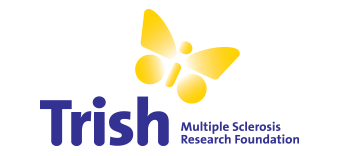Enhancing brain activity to re-wrap nerve fibres
Dr Kaylene Young, Menzies Institute for Medical Research, Tasmania, was awarded an MS Research Australia Project Grant titled, ‘Enhancing brain activity to re-wrap nerve fibres’ over 2017-2019 funded by the Trish Multiple Sclerosis Research Foundation.
Dr Young and her team have previously established that a non-invasive technique, known as repetitive transcranial magnetic stimulation, is able to massage brain activity and increase the production of cells that produce myelin in the brain. In this project, Dr Young used this technology to increase the production of myelin producing cells, to re-wrap nerve fibres in myelin and promote lesion repair in the brain in two laboratory models of MS; one model has a single small area of demyelination or damage and the other is a model of more widespread MS like disease. Dr Young is examining the brain tissue under the microscope to determine how effective this treatment is in repairing damage to the myelin coating on nerve cells and in combating disease progression in the models.
To date, Dr Young has managed to collect all brain samples needed for the study and analysis is underway. She is aiming to determine the number of new myelin producing cells within the lesion site and determine the amount and length of myelin that is generated in response to the magnetic stimulation. In the preliminary findings, Dr Young has found that in the single small lesions, the amount and length of myelin did not change in response to transcranial magnetic stimulation. However, that might be because in these cases there was already some repair underway. Dr Young is currently analysing the brain tissue which had more widespread MS like disease. Through this research, she has also determined the optimal transcranial magnetic stimulation method, which can hopefully be successfully translated to clinical trials on people with MS.
It is hoped that if these experiments are successful, the transcranial magnetic stimulation may be used as a therapy to repair existing damage in progressive MS and proceed to clinical trials.
Dr Young has received funding from the Ian Potter Foundation to purchase two new confocal microscopes that will double imaging capacity. She was also successful in receiving a collaborative National Health and Medical Research Council grant to continue to her work. She has also prepared and published several manuscripts in scientific journals.
